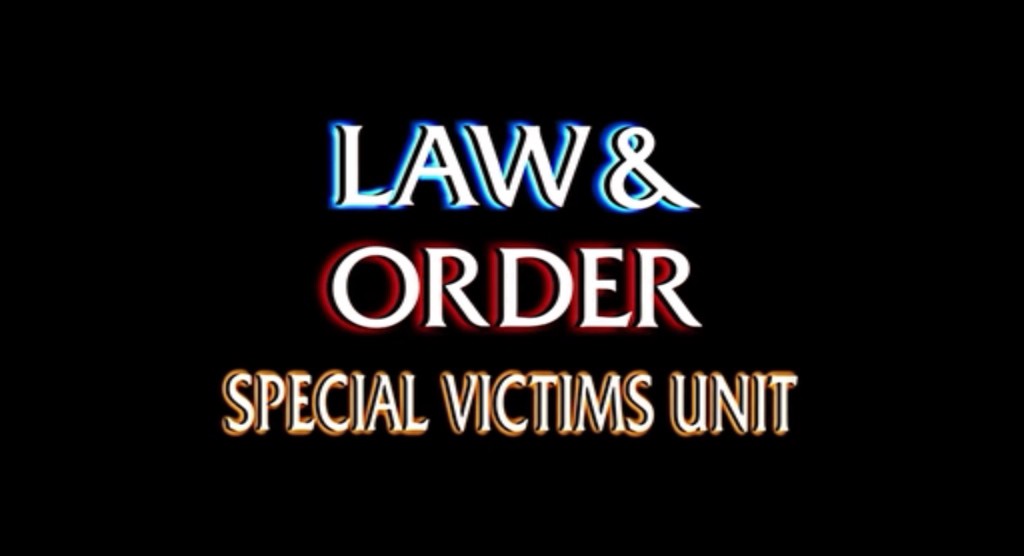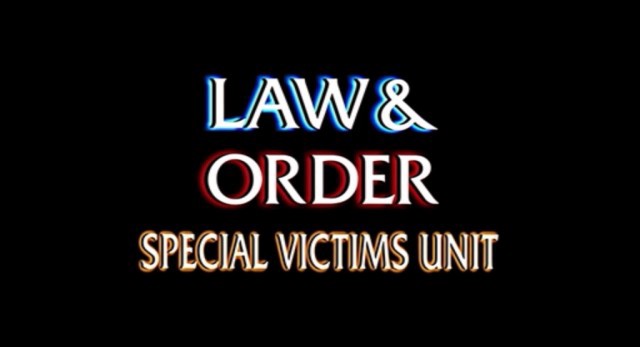Members Of An Elite Squad
by Hannah Giorgis


The opening lines of Law & Order: Special Victims Unit are etched into my brain in a way that makes “members of an elite squad” flow off my tongue as though it were a nickname for my family.
My father has always loved procedurals — CSI, Cold Case Files, NCIS, you name it. He can watch for hours at a time and revel in the way they made his brain tick. He is a systems analyst by trade, and crime shows allow him to keep solving puzzles long after he leaves the office. I grew up not being allowed to watch TV Mondays through Thursdays for most of my childhood (shoutout to strict immigrant parents), but I would catch snippets of the shows from behind the wall that separated my family’s kitchen from the living room. When my parents left the house and I stumbled upon Law & Order: SVU marathons, I’d spend hours mouthing along to the opening lines, banging an imaginary gavel, and memorizing each episode’s plot.
By the time I was officially allowed to watch the show, I could tell what season was on by a quick glance at Olivia Benson’s haircut. I knew the names of all 45 of Elliot Stabler’s kids. I’d memorized some of John Munch’s deeply unfortunate puns, and I could sense exactly when Fin Tutuola would show up with a declaration in the key of Captain Obvious. I thought myself quite the mini legal aficionado.
To this day, I remember exactly which season is the one where Stabler’s inevitable divorce finally happens, the one where Ludacris first makes an appearance, the one where Fin struggles to come to terms with his son’s sexuality.
But I don’t remember the first time watching Law & Order: SVU gave me flashbacks to my own assault. I can’t tell you when I began to occasionally find myself in tears mid-episode or when I first realized that feeling was perversely cathartic.
The details of my first assault are similarly hazy. They do not fit neatly into 41-minute TV reels with pre-packaged credits and catchy intros. The problem in my cases was never an elusive suspect, a reluctant witness, or a blurry surveillance tape. On TV, those are the only roadblocks to justice. My barriers have always resisted easy categorization. The first time a man touched me without my consent, I still wasn’t old enough to watch the show, but I’d found words to describe what had happened to me through its characters.
When the show’s young victims colored drawings for (the criminally underrated) Dr. Huang to analyze, I absorbed every detail of their art, wide-eyed and curious. Could my teachers tell what had happened to me based solely on my sloppy coloring? Was every perpetrator as transparent as the ones Dr. Huang interviewed? He was so wise, so easily able to unearth someone’s deepest secrets. I wanted that power for myself; I needed to know why someone had chosen me. Was there something about me that called out to my perpetrator? If I couldn’t change what had happened to me, at least I could channel Dr. Huang and try to understand why. I was full of questions, and too scared to ask anyone; I knew what happened to girls who shared the secrets men had instructed them to keep buried between their legs.
Years later, when I realized in college how many of my female classmates also loved the show, how many women in campus feminist organizations could recognize a specific episode’s plotline within minutes of tuning in, I didn’t think much of it. Women have similar interests all the time; that didn’t make us a de-facto sisterhood of troubling coping mechanisms. And to be fair, Law & Order: SVU is something of a cultural phenomenon, an obsession for too vast an audience to qualify as cult. It is the quintessential “good cop” show; the intro song’s “dun dun” so familiar it’s canonical.
I told myself we were just tuning into the ship that launched a thousand actors’ careers (for the record, Aaron Samuels from Mean Girls has always been hot). We convinced ourselves that Olivia was just the badass feminist role model we didn’t know we’d needed and watching her struggle to make sense of her on-duty assault was just a media case study in internalized victim blaming. We, Smart Feminist Ladies who called out rape culture in our everyday lives, would never shame ourselves like that. My personal obsession with the show stopped feeling strange in the company of others who knew the series so intimately. I never talked about the nights it made me cry or told anyone it was easier to blame a TV character than to admit you blame yourself.
One night my senior year, I noticed myself compulsively searching Netflix for an episode I hadn’t seen yet. I knew I’d exhausted the entire catalog, but I didn’t know where else to turn after a classmate had hovered over my body in his room and told me my “no” really meant “yes.” I’d walked back to my room with a cancerous guilt expanding in the pit of my stomach, convinced somehow that I hadn’t been clear (“how many times did I say no? Maybe 3 wasn’t enough?”). But that faded to a dull, digestible ache for 41 minutes as I settled for a season 2 episode and self-medicated with my go-to survivor salve: Benson and Stabler tackling a case I’d seen countless times before. Girl gets hurt. Bad guy runs. Good cops catch him. The end. It was simple, and I needed that happy ending desperately. I slept easier that night and woke up thinking not of my own body but of the SVU victim’s; she had testified in court that episode and the last frame before Dick Wolf’s name was her smile.
But if this predictable, formulaic depiction of justice is Law & Order: SVU’s greatest comfort, it is also its greatest deception. The show has managed to convince a generation of viewers that cops are largely benevolent workaholics who will always do their best to seek justice for victims, that their occasional forays into unconstitutional behavior are always justified. But law enforcement officers routinely ignore sex crimes altogether, commit inconceivable sexual violence themselves, and face little (if any) retribution.
I’ve never reported any of my assaults. By the time I was old enough to have the option, I knew better than to think I had a chance at obtaining justice through the courts. But I kept watching SVU, content to see narrow visions of justice played out each episode with microwaveable resolutions all but guaranteed. It still felt good to see non-convictions as an anomaly, to be shocked the few times the bad guy got away. In a far away TV world where “sexually-based offenses are considered especially heinous,” I delighted in figuring out each episode’s puzzle and maintaining some level of passive control.
But sexual assault isn’t simple. It does not tie up neatly at the end of an episode with a guilty verdict or the efforts of magically warm-hearted cops sympathetic to the victims they encounter. Sometimes your perpetrator emails you and asks you to lunch after the “incident.” Sometimes you tell yourself it wasn’t “that bad.” Trauma doesn’t have a predictable storyline. Law & Order: SVU gave me comfort by telling me stories of “dedicated detectives” who fought hard fights for easy solutions. But in a world where I can never take my bodily autonomy for granted, I need more than quick fixes to heal. And there’s no script for that.
Hannah Giorgis is a writer and organizer based in New York. She likes bad TV, even worse puns, and daydreaming about her future with Andre 3000. You can follow her on Twitter @ethiopiennesays.